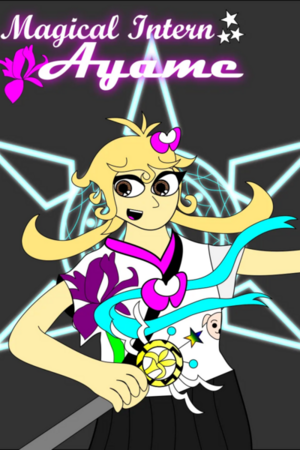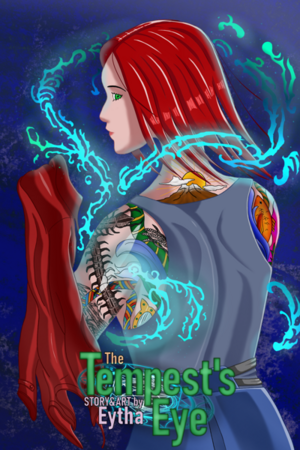Chapter 1:
Shadows of the Cold War
The Drift of Time
Elias woke before dawn, as he always did. His one-bedroom apartment was silent except for the faint hum of traffic below. Outside the window, the city’s towering skyline looked deceptively peaceful under the glow of streetlamps. In truth, it was a city haunted by old ghosts—a place still shaped by the secret arms race that had continued underground long after the official end of the Cold War.
He pulled on a worn sweater, silently crossing the cramped living area to the small kitchen. On a wooden shelf, dusty books hinted at his past: engineering manuals, journals on advanced physics, and a few thick volumes about “Project Chronos.” He hadn’t opened them in years. Reading too much about the past only brought painful reminders of how that secret research—once rumored, now partially revealed—had destroyed his family.
By 2030, the world had never truly resolved its East-West rivalry. Officially, the Cold War ended decades ago, but clandestine projects continued, fed by paranoia and global competition. One of those ventures was Project Chronos, a militaro-scientific program rumored to manipulate time itself—accelerating or slowing it to gain a strategic edge. As rumors of “time bubbles” spread, so did the fear that experiments had escaped their labs and begun warping reality itself.
Elias scooped coffee grounds into the old drip machine. The bitter aroma soon filled the air, a modest comfort in uncertain times. He glanced at a small framed photograph by the sink: his late wife, Marie, holding their newborn daughter. Ten years ago, Marie had disappeared into one of those rumored “anomalies.” She came out… unrecognizable, aged nearly a lifetime in just a few heartbeats. Elias closed his eyes, pushing the memory aside.
A gentle creak of the bedroom door made him turn. His daughter, Lucy, emerged, blinking sleep from her large brown eyes. She was ten years old—but sometimes, she radiated a quiet seriousness beyond her years. She wore dinosaur-print pajamas, clutching a plush toy shaped like a small turtle.
“Morning, Dad,” Lucy said, her voice timid yet warm.
Elias forced a smile. “Morning, sweet pea. Didn’t mean to wake you.”
“It’s okay,” Lucy mumbled, yawning. “You always wake up too early.”
They shared a small breakfast—toast, peanut butter, and coffee for Elias, milk for Lucy. She perched on the kitchen stool, swinging her legs. Elias couldn’t help noticing how her eyes darted across the chipped wallpaper, as if searching for something new in their familiar surroundings.
Ever since Lucy could talk, she’d peppered him with questions about her mother. In recent months, he’d become more open, telling her gentle fragments of the truth: that Marie died because of “an accident with an experimental device.” He never said “time bubble” outright. He feared telling Lucy about the dreadful details: how Marie had walked into what government officials called a “localized anomaly” and emerged so aged and frail that she barely made it through the night. That memory gnawed at him. And so he kept the story vague, to protect Lucy… or perhaps to protect himself.
While Lucy finished her milk, Elias cleared the dishes and turned on a small radio perched on the counter. Static crackled before the news anchor’s voice faded in:
“In local headlines, several unexplained disappearances have been reported across the district. Authorities have declined to comment on whether these incidents are linked to rumored ‘spatial anomalies’…”
He quickly turned the volume lower, not wanting Lucy to fret. Yet she caught a glimpse of worry across his face. Sometimes she asked, “Dad, are those ‘anomalies’ the same thing that hurt Mom?” He would respond with half-truths—“It’s complicated,” or “We can’t be sure.” But the older she got, the less satisfied she became with those evasions.
Lucy slid off her stool, hugging her turtle plush. “Dad, can we go feed the ducks at Riverside Park later?” she asked brightly. Her childish innocence always tugged at Elias’s heart.
He paused, recalling the headlines about “disappearances,” the hush-hush rumors of new “time distortions” near the water. But Lucy missed her old routines—like weekend picnics with Mom. He swallowed his hesitation. “Sure, kiddo, we’ll see. Maybe if the weather’s okay.”
Elias moved to the living room window, gazing out at the concrete sprawl. Ten years…ten years since Marie vanished beneath those swirling lights of an unexplainable phenomenon. Officially, the government claimed an “industrial accident.” But Elias knew better. He’d been an engineering consultant, tangentially involved in secret projects—though never high-level. Enough to sense that Project Chronos, rumored to manipulate gravitational fields, was real. Enough to suspect that Marie’s “accident” was actually a catastrophic leak of experimental technology.
He sighed, turning back to Lucy. She was rummaging in her backpack for a scribbled drawing. She offered it with a shy smile: a crude crayon portrait of Elias, Lucy, and a hazy silhouette with “Mom” scrawled overhead.
“It’s beautiful,” Elias murmured, voice tight. He gave Lucy’s hair a gentle ruffle. She beamed, though sadness flickered in her eyes.
Outside, the morning hustle began. Trucks rattled over potholes, and towering billboards displayed slogans about “National Strength through Innovation.” Government spokespeople insisted the city’s progress was unstoppable: new bullet trains, advanced biotech. Yet behind the facade, Elias sensed fear simmering. He’d overheard coffee-shop whispers about “time pockets” forming in certain alleys, children aging overnight, or elders caught in a slowed bubble for weeks.
Lucy leaned on the windowsill. “Dad, do you think there’s something strange going on out there?”
Elias hesitated. “Why do you say that?”
She shrugged. “I… had a dream that weird lights were floating over the water, calling to me.” Her face scrunched. “It felt like… Mom was there.”
Elias’s breath caught. He forced a light laugh. “Dreams can be funny, sweetheart. Don’t worry. It was just a dream.” But inside, his heart pounded. Marie had once described the swirling anomaly as “lights dancing like ghostly ribbons” moments before she collapsed. Could Lucy, in her own childlike way, sense the same phenomenon?
To distract themselves, Elias decided they’d venture out for groceries. The walk was short—two blocks down a gray boulevard littered with propaganda posters: uniformed officials boasting about “safeguarding tomorrow.” A small group of protestors stood by a corner, holding signs that read “Stop Chronos” and “No More Missing!” Police in riot gear loomed nearby, ignoring them unless they blocked traffic.
Lucy studied the protestors. “Dad, is this about those time things on the news?”
He pursed his lips. “Maybe. Let’s keep walking, Lucy.”
They passed a narrow alley plastered with missing-person fliers. Elias recognized a face or two: neighbors who’d vanished. He felt Lucy grip his hand tighter. Usually she didn’t cling to him like that—her quiet fear revealed how disturbing these vanishings were to her. Meanwhile, overhead, a set of battered drone-cameras whirred by, scanning the street. One hovered near a protest sign, capturing every detail. Elias felt the chill of being watched.
He recalled his father’s old warnings from the Cold War era: “Never trust the highest ranks. They always have deeper motives.” Elias wondered if, even after so many decades, the same paranoia thrived—except now it was embedded in clandestine research labs instead of open missile bases.
After picking up a few basics at a shabby grocery store, they made their way back. Lucy lagged behind, eyes lingering on the protest group dispersing under the cops’ stern watch. Elias tried to usher her along, but the gloom of the city seemed to press in. He forced a reassuring tone:
“Come on, Lucy. Let’s get you something nice for lunch.”
She nodded. “Maybe grilled cheese?”
He smiled, grateful for her simple request. The normalcy of grilled cheese sandwiches felt like a lifeline in a world overshadowed by rumored anomalies and covert militarism.
They climbed the narrow stairwell to their floor. Elias unlocked the door, releasing a tense exhale once it clicked shut. Lucy dropped her plush turtle on the sofa and began rummaging for crayons. Meanwhile, Elias flipped on the old television for background noise while putting away groceries.
“…Local authorities have confirmed an unusual energy reading near Riverside Highway… citizens are advised to remain calm. Officials deny any link to alleged Chronos research—”
He abruptly muted it. Scenes like these had become a fixture on the news channels. Denials and half-answers. The same pattern that followed Marie’s disappearance: a quick brush-off under “industrial accidents.”
At noon, Lucy napped on the couch, crayons scattered around her. Elias lingered by the kitchen table, lost in thought. He recalled that final day with Marie: her gentle laugh, the promise that she’d be “right back,” and then the frantic phone call from a research facility on the outskirts of the city. He could still taste the metallic bitterness of regret.
He swallowed hard, scanning his battered phone. No missed calls, no new texts. Just the same uneasy quiet. He glanced at Lucy’s peaceful face—her childhood innocence. He refused to let her become another victim of these hush-hush anomalies. If the rumors were true that more “bubbles” were forming, he had to remain vigilant.
By early evening, the sky burned a dusky orange. Lucy awoke in better spirits, munching on a snack as she doodled more pictures of turtles. Elias settled onto the threadbare armchair, remote in hand, mind churning with anxiety. The news anchor’s voice crackled into focus:
“This just in—a government flash bulletin: Anomalous spatio-temporal readings have been detected on the city’s northwest perimeter. The public is asked to keep calm and stay clear of restricted zones. All rumors regarding ‘Project Chronos’ remain unsubstantiated at this time.”
Lucy paused, color pencil in hand. She turned to Elias. “Dad, does that mean more people might… vanish?”
Elias’s heart pounded. A memory of Marie’s final gasp flickered in his mind. He forced himself to stand, crossing the room to power off the TV.
He took a slow breath, trying not to alarm Lucy. But inside, dread coiled like a serpent. Anomalies on the city’s perimeter… Just like back then.
He flicked the TV switch. Silence enveloped the room. The only sound was Lucy’s quiet breathing, her wide eyes reflecting confusion.
Elias exhaled shakily, a chill coursing through him. If this is happening again… could it be tied to the same phenomenon that took Marie? He had tried to bury the past, to keep Lucy safe. But as shadows of the Cold War lurked in every broadcast, he feared that no one was truly safe. Certainly not Lucy. Not anymore.
He glanced at her, forcing a gentle tone. “C’mon, Lucy. Let’s tidy up a bit and then we’ll… figure something out, okay?”
Yet a gnawing certainty formed in his mind: the illusions of normalcy were about to shatter.




Please sign in to leave a comment.